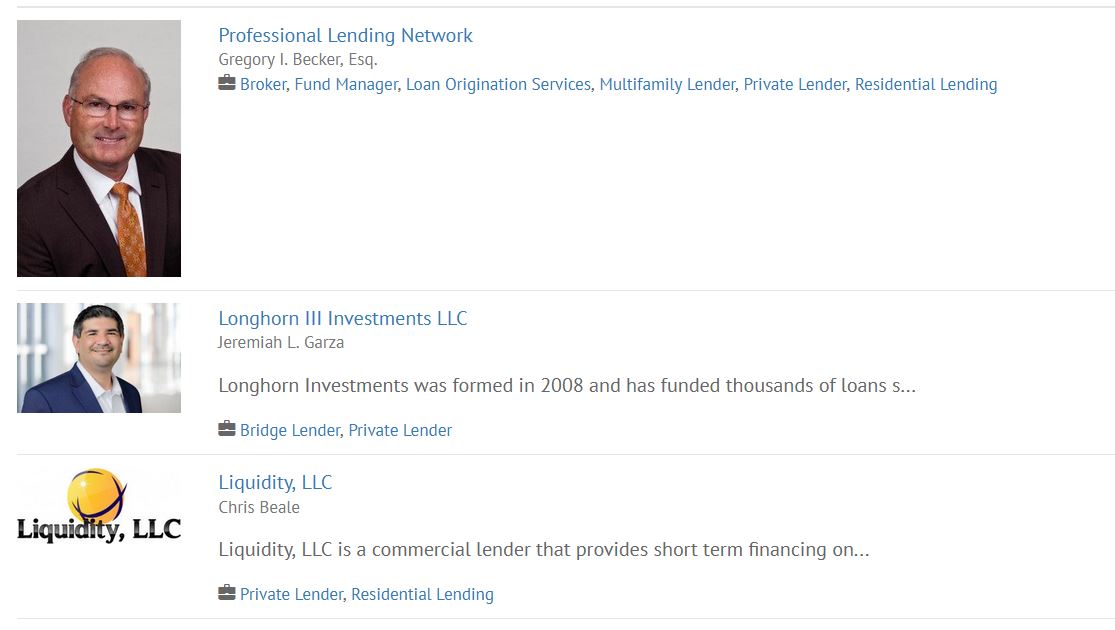One of the most important aspects of real estate investing is financing. But traditional lending may not work in every situation and you may choose to go with a private lender instead. Here is a closer look at private money lending and how to find private investors for real estate.
Table of Contents
What is a Private Investor For Real Estate?
A private money lender is an individual or company that uses personal funds to finance an investment – in this case, a property. While many real estate investors choose to secure financing from a traditional lender such as a bank, there are certain circumstances where this may not be feasible. For instance, if you are looking to flip a house, a conventional mortgage loan with an early repayment fee probably isn’t the best solution.
Private money lenders often offer more flexible terms or other benefits that may be attractive to investors. It’s up to the discretion of the lender to set the terms of the loan, as they aren’t under the same kinds of regulatory pressures as a traditional lender. As a result, private money lenders typically charge higher interest rates than banks, but they can also offer more flexibility and other key benefits that can be beneficial to certain investors.
Private Investing Companies vs. Private Investing Individuals
There are two types of private lenders: companies and individuals. Anyone with the funds available can become a private lender as long as both parties agree to the terms of the loan. So, an individual private lender could be a friend, relative, neighbor, business partner, or colleague.
There are also companies that specialize in private lending. These are not banks, but private businesses that offer alternative financial products that have key benefits for real estate investors. They will also typically have some underwriting standards, but they won’t usually be quite as strict as a bank or other institutional lender.
How the Process of Working with Private Investors Works

The process of working with a private lender will vary depending on the circumstances of the loan and the relationship between the two parties. The nature of private lending is that it’s up to the lender and borrower to agree on the terms of the loan. So, the process may be different depending on the scenario.
If you choose to get a loan from a private lending company, it will likely be similar to working with a traditional lender, but with different loan terms. Whereas if you are borrowing from a close friend or relative, the process may be even more informal.
As a real estate investor, the first step is to decide who you are going to borrow from and where they are getting the funds. Perhaps the lender already has the cash on hand or perhaps they are pulling the money from a retirement account or tapping into the equity on their own home. It’s important to establish where the funds are coming from before you agree to anything, so there are no surprises.
Other than that, it works just like a traditional mortgage. Both parties will sign a contract agreeing to the terms of the loan and repayment schedule. No matter how familiar you are with the lender, you should always sign a contract before you take any money – otherwise, things could get messy later on.
How to Find Private Investors for Real Estate
There are several ways that you can find a private real estate lender for your next investment opportunity.
1. Use The American Association of Private Lenders: If you are based in the United States, you will be glad to know that there is an online database of private money lenders that you can tap into with ease.

As you can see from the screenshot above, it’s fairly easy to find private money lenders on this platform.
On this point, it’s worth mentioning that New Silver Lending LLC is an official member of the American Association of Private Lenders, and we offer extremely fast closing private money loans.
2. Do a Google Search: Just like any other business, many private lenders advertise online. This will only help to find private lending companies that may not be quite as flexible as an individual lender. But this is a good place to start, so you get a sense of what is available and what kinds of interest rates are standard.
3. Networking: Networking is key to real estate investing, no matter what kind of funding source you’re after. You can start with your personal network and see if there is anyone you know who may be interested in funding your real estate project. Attending local real estate events, conferences, workshops, and other business functions is also a good way to get your name out there and meet potential investors.
4. Cold Calling: If networking isn’t working out, you should try a more direct approach and reach out to investors in your area through cold calling. You can find a list of local investors through a local real estate brokerage or by searching public records. You’ll probably have to make a few phone calls to find someone who is interested, but you’d be surprised at how effective this method can be.
5. Use LinkedIn: There are a large number of reputable private real estate investors that have a LinkedIn profile. For instance, here is the profile of Kirill Bensenoff, whose company is dedicated to helping investors source capital for real estate.

There is nothing preventing you from reaching out to people like this. Also, if you have a professional LinkedIn account, it can greatly enhance the speed and efficacy of your outreach efforts.
Private Investor vs Hard Money Lender
Hard money lending is another type of alternative financing that many investors use to finance investment property. A hard money lender will usually offer most of the same benefits as a private money lender. However, there are a few key differences.
Hard money lending refers to a loan that is secured by an underlying asset – in most cases a property. So, the value of the property is what determines the loan amount. There are typically no credit or income requirements. If the borrower fails to repay their debt, the asset can be repossessed and sold. Hard money lending will typically carry higher interest rates because there is more risk for the lender, but this can be another way to finance a real estate deal if you’re in a pinch.
Private money lending, on the other hand, is more based on your relationship with the lender, whether it’s someone you know personally or a company you’ve contacted. The main difference is that hard money lenders will work with anyone who meets their criteria, whereas a private lender may be more exclusive and only work with you once you’ve proven yourself.
Benefits of Using a Private Investor for Real Estate
There are numerous benefits to using a private investor to finance a real estate investment. The biggest benefit is the flexibility of the loan terms when compared to a conventional loan.
When you obtain financing from a traditional lender, there is very little flexibility with the terms of the loan because the institution has to meet certain underwriting standards and regulatory requirements. A private money lender is not held to those same standards, so there is much more room to negotiate and customize the loan terms to meet your needs.
Another major benefit of a private money loan is that you likely won’t be required to meet certain credit or income requirements, especially if you know the lender personally. This can be useful to those with bad credit or self-employed individuals who may be deemed more of a risk to traditional institutions.
- Flexible loan terms
- Ability to negotiate terms
- Less stringent credit requirements
- Willing to fund properties if there is obvious potential
Risks of Using a Private Investor for Real Estate
There are also a variety of risks when it comes to using a private investor to finance a real estate project.
A private lender may charge a higher interest rate because they are assuming more risk. Or they may want a larger cut of the profits. While they may believe in your hustle and work ethic, private lenders are assuming a bigger risk than a bank. They likely don’t have a huge balance sheet or other deals they are working on, which could offset the loss if you don’t repay. So, they may try to neutralize that risk in other ways to ensure they make their money back.
Plus, if you borrow money from someone you know personally, it may damage your relationship if things don’t work out. Sometimes business and friendship don’t mix and if the deal goes south, you may lose a close friendship in addition to your time and money.
- Higher interest rates
- Will repossess the property the repayments aren't met
- You can put your personal relationship at risk
- Might take longer than expected to source funds, depending on which investor you use
Final Thoughts
No matter where you obtain financing, you should always do your due diligence and have a solid business plan before you agree to anything. But private lending can be a smart option for real estate investors, especially if traditional lending doesn’t make sense for the project you’re working on.
Lastly, if you struggle to find a private real estate lender, a hard money lender is usually the best alternative. In addition to being quite easy to find, hard money lenders offer very quick access to finance, together with legal protection for both parties involved in the investment opportunity.

